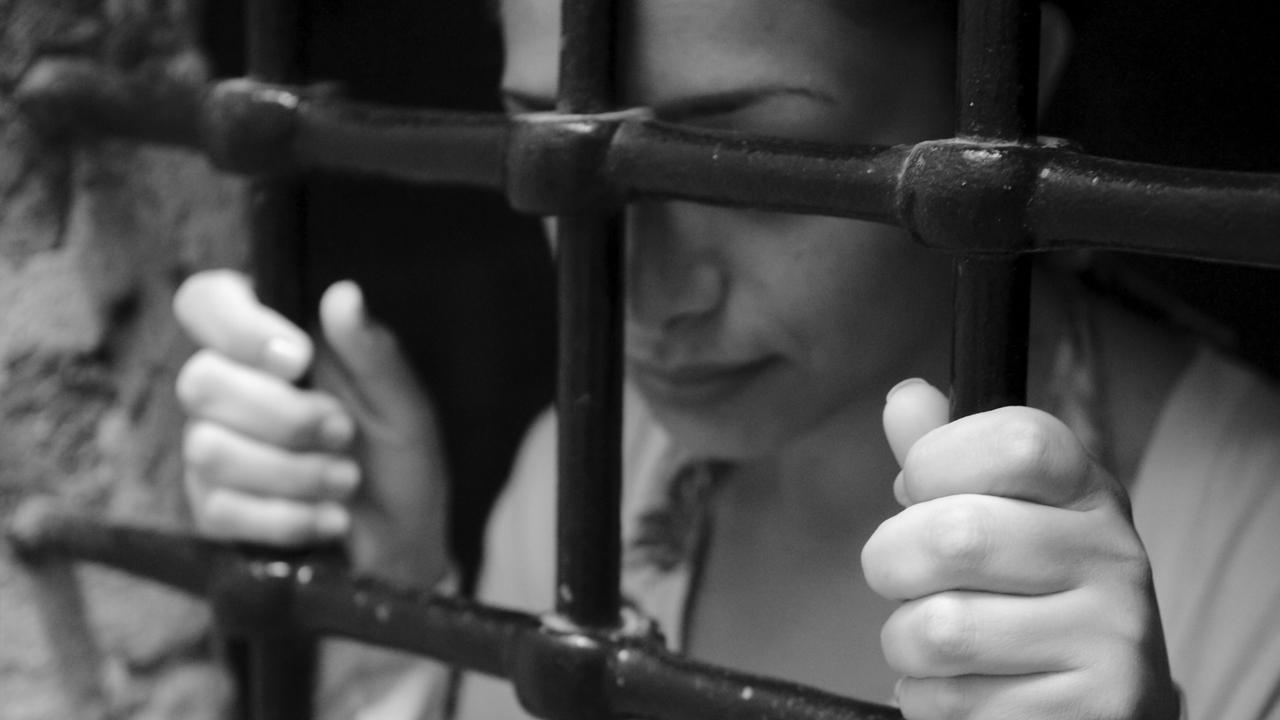Ten years of Federal Government cyber safety program ThinkUKnow
Ten years ago, a Federal Government program was set up to better educate Australians on the dangers to children on the internet. Chris Clarke has been given a terrifying insight into just how depraved the world beyond our computer screens can be.

TEN years ago, a Federal Government program was set up to better educate Australians on the dangers of the internet.
Its goal back then was to not just to warn parents about pedophiles posing as children online. But it also served to educate everyone on the risks associated with overusing social media platforms like MySpace, Facebook and Twitter.
That Government program, called ThinkUKnow, celebrated its 10 years anniversary this week.
And while the milestone was an acknowledgment of how far the fight against cyber danger has come, the battle has evolved in ways no one could have foreseen.
Qld cop honoured for rescuing children from online predators
The $1.4 million a year kids on the Gold Coast who are not being fed by face a childhood of abuse
The Courier-Mail was this week given exclusive access to the men and women tasked with keeping our children safe from harmful online material.
What they have seen and the lengths they are willing to go to every day gives a terrifying insight into just how twisted and depraved the world beyond our computer screens can be.
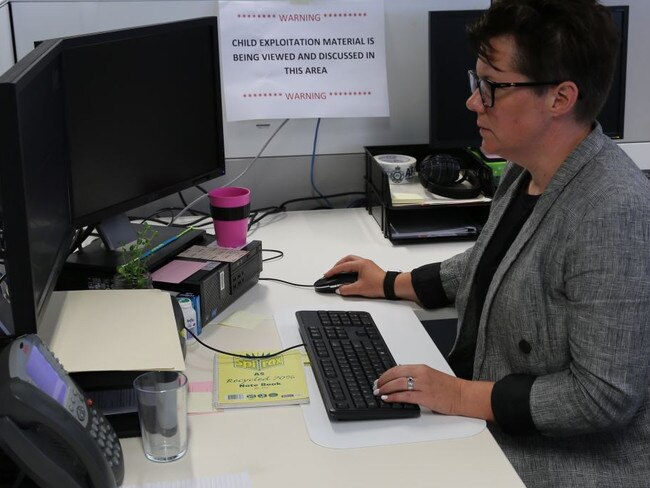
FEDERAL Agent Rebecca Goddard is the team leader for the Australian Centre to Counter Child Exploitation’s Evaluation and Referral Centre.
Each day, Agent Goddard and her colleagues take part in a task that would scar most of us forever.
“My team can receive anywhere from 30 to 100 reports of online child grooming and sexual exploitation material a day,” she says.
“Once we received these reports, we assess the reports with the available evidence.”
The reports come from all over the globe. Not just from the Australian public, but also international police organisation INTERPOL.
Once the evidence is assessed, Agent Goddard and her team develop “referral packages”, which are then sent to the Australian Federal Police’s child exploitation detectives.
While the thought is enough to make your skin crawl, Agent Goddard’s work is crucial because she’s seeing if the content she is sent is linked to ongoing child sex crime cases, or online child exploitation rings.
If it matches up, it could form part of crucial evidence used to find dozens of trafficked and abused children.

It’s incredibly rewarding work, Agent Goddard says.
“We work tirelessly to identify children that are at risk.
“In some cases, children are being exploited by an adult in a trusted position, a person of similar age or who is supposedly a friend of a friend. And where this is suspected, the matter is investigated in efforts to remove that child from harm.”
But the job is evolving in way that are hard to fathom.
“We are seeing are children as young as four and five self-producing child exploitation material,” she says.
This means young children are unknowingly uploading images and videos of themselves on the internet, which are then being pilfered by pedophiles.
“In 2018 we received over 18,000 reports relating to online child exploitation material and grooming involving blackmail and manipulation. This is almost double the amount of reports from 2017.
“Each of these reports can contain hundreds and thousands of images and videos of child being sexually abused and tortured.
“Our concern is for the youth producing this material as they may not be aware of where that image may end up, not just with friends that were not intended recipients, but possibly in a forum discussing or exchanging child exploitation material or on one of our officer’s desk for triaging.”
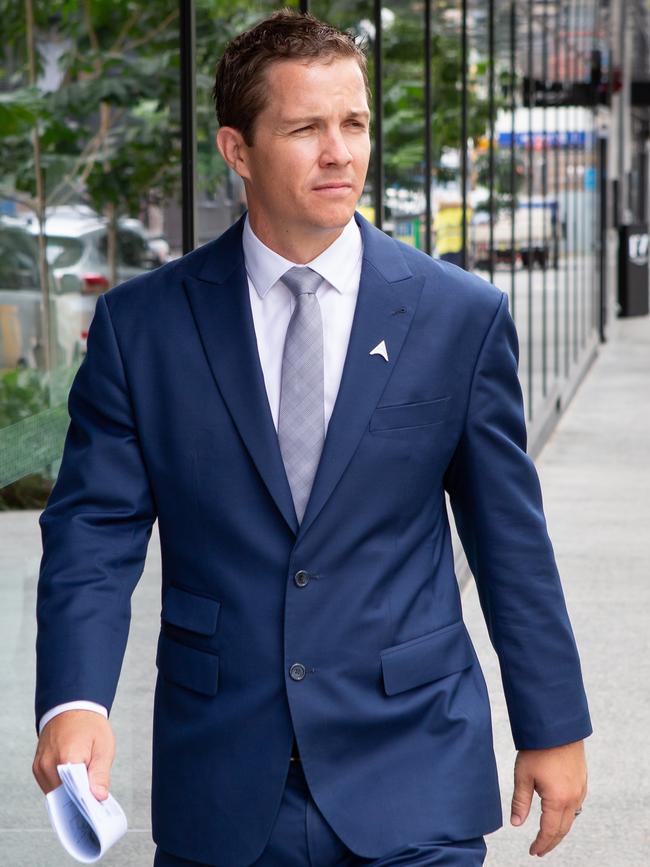
DETECTIVE Superintendent Dan Evans is the co-ordinator of the Australian Centre to Counter Child Exploitation.
He balances his time each day between organising covert online investigations, national intelligence gathering and identifying child victims, among other tasks.
It’s a heavy workload, but “it’s an effort that is essential for the success of saving children both here in Australia and globally”, Det Sup Evans says.
And it’s a balancing act reliant on the success of other agencies as well — ensuring Australian and South Asian law enforcement officers have the right training to combat the crimes.
Sup Det Evans says it’s difficult to describe the harrowing things he’s seen in the job, both in Australia and abroad.
“We never cease to be shocked by the level of abuse of children so innocent with their lives just beginning,” he says.
“The biggest challenge is to come together for a united purpose and to focus on providing a safe environment for all children in our community.”
The future of Sup Det Evans’ role will be “challenging but rewarding”, he expects, as police around the world prepare themselves for further evolution in the fight against child exploitation material.
With children getting access to mobile phones and the internet at younger ages, the benefit of educating the next generation about safe internet use will only become more important.
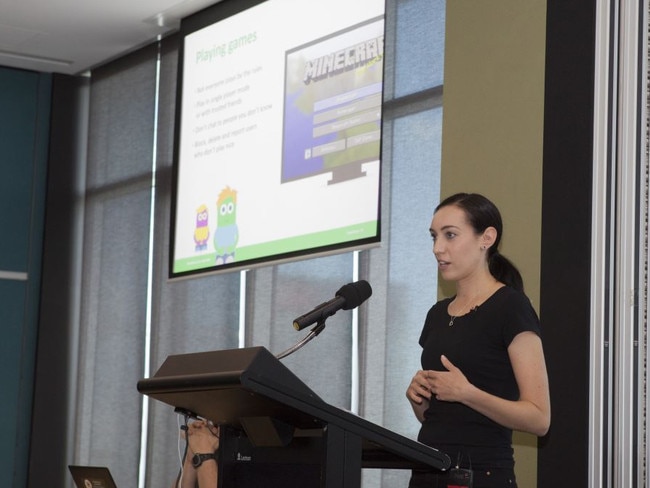
AUSTRALIAN Federal Police Online Child Safety Team leader Simone McKeough is responsible for the development and management of the ThinkUKnow program — a law enforcement led initiative to educate the Australian community about online child safety.
ThinkUKnow is based on real cases, issues and trends that employees see through the Evaluation and Referral Centre, led by Agent Goddard.
Every day in the Online Child Safety Team is different, Ms McKeough tells us.
“Whether we’re developing a community education message in response to a report, or delivering a training session to volunteers and law enforcement presenters — we’re always working to prevent the reports we’re continuing to see through the Evaluation and Referral Centre,” she says.
The trick is getting children, parents, carers and teachers all on the same page.
And this is where the battle to protect our children in the future begins.
“The message we deliver at one ThinkUKnow session could help prevent someone’s child, grandchild, niece, nephew, brother or sister, being exploited online.
But ThinkUKnow isn’t just about telling kids which apps are good or bad.
“From our perspective all apps have the potential to be misused by online predators and cause harm,” McKeough says.
“For ThinkUKnow, it’s about helping parents and carers understand how the apps themselves actually work, or their ‘features’, and what challenges these might present. For example — chat based apps with anonymous sign up will have more online safety challenges than others.
“If you are unsure about the features in the games or apps your children are using, do some research, download it yourself and see how it works, or better yet, sit down with your child and ask them to show you how it works and how they use it.”
Like her colleagues at AFP, Ms McKeough has seen plenty of things she wish she didn’t have to.
“One of the difficult things is seeing the common issue of children being approached through direct message or chat applications — and parents and carers being unaware that the apps or games their child use have this feature.
“Offenders know the types of apps and games children use, and a direct message or chat function in an app or game usually means that anyone could attempt to make contact with your child.”
While there’s many messages for parents to heed, the most important include:
■ Finding out what apps your children are using and who they are interacting with online.
■ Supervising young children to prevent grooming or unwanted contact online.
■ Ensuring your child feels comfortable in talking to you about issues they might be experiencing online and they know how to report it and get support.
■ Consider establishing a Family Online Safety Contract — developed by ThinkUKnow and The Carly Ryan Foundation — it has been designed to help parents and carers start online safety discussions with their children. A copy is available at thinkuknow.org.au
■ Book a presentation for your school or organisation at thinkuknow.org.au
Over the past 10 years, the program has grown exponentially, now reaching more than 17,000 parents, carers, and teachers and 200,000 students every year.
With an increasing number of reports of child exploitation received each year, the need for the ThinkUKnow program and online vigilance has never been greater, Home Affairs Minister Peter Dutton says.
In 2018 alone, 17,893 reports were received, almost doubling the previous year where a total of 9,741 reports were received.
For more information on how to stay safe online, visit thinkuknow.org.au
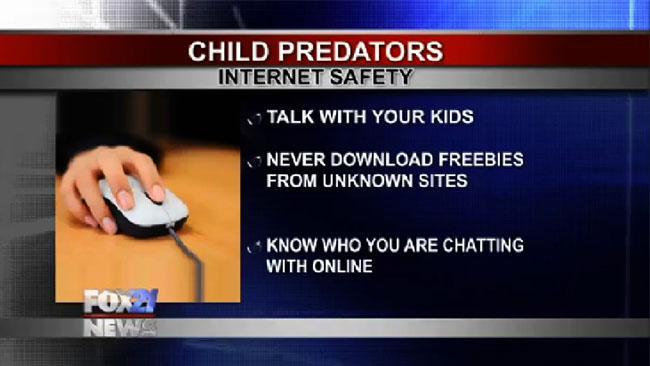
Originally published as Ten years of Federal Government cyber safety program ThinkUKnow

